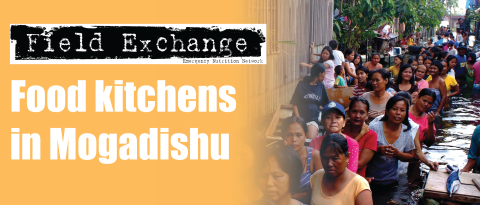Participatory study of impact of global crises on the poor

A pregnant mother feeds her 2 year old daughter only rice, in the face of escalating food prices in Bangladesh
Summary of published research1
The findings from a participatory study on the impacts and responses to the food, fuel and financial crises in poor rural and urban communities in Bangladesh, Indonesia, Kenya, Jamaica and Zambia have just been published. The study was conducted in February 2009. The research findings are meant to be illustrative rather than representative of the wider impact, offering insights into the processes, institutions and relationships through which poor people are experiencing the crises. The study was also designed to test a methodology for fast, but systematic, participatory monitoring.
The global financial crisis is coming at a time when the shock of high food and fuel prices continues to reverberate. People have yet to recover from the peak of the food and fuel crisis, many prices remain high and fluctuation has created uncertainty.
The impact of the global crisis is already being felt in peri-urban Jakarta, Indonesia. Here, migrant export sector workers started to return home late in 2008 when their contracts were not renewed, while others have had their working hours reduced. The wider impacts of the downturn in export manufacturing are being felt by local businesses that depend on the export sector. By contrast, garment factory workers in Dhaka report that new jobs are available, but in poor quality, unsafe sub-contractor sweatshops, rather than in the labour standards-compliant factories.
Fluctuating agricultural prices have created uncertainty. In rural Kenya, food prices continue to rise as a result of drought, but farm-gate prices have dropped sharply. In Bangladesh and Zambia, farmers report high fertiliser and diesel costs are constraining efforts to increase production. Credit is being squeezed, including in Jamaica where the January 2008 crash of the investment company, Cash Plus, has meant investment capital losses for many low-income people. In rural Bangladesh, a microfinance non-governmental organisation (NGO) reported local lending was down and bad loans were up.
Livelihood adaptation has been swift, but into low-yield or dangerous activities. Women have been prominent in developing new forms of retail for low-cost food items, in small quantities and on convenient terms. Men from Kalimantan, Indonesia, were travelling to another island to mine gold, and cross-border smuggling was reportedly rising in rural Bangladesh - both illegal and dangerous but potentially lucrative activities.
Eating less frequently, and less diverse and nutrient-rich foods was commonly reported across all ten communities. Health seeking behaviour was found to have changed in a small number of cases, with people resorting to self-medication and avoidance of expensive procedures. More common was the sense that education was at risk. There were many children being withdrawn from school or college. Children were reported to be entering work, including unconfirmed reports from Kenya and Zambia of growing numbers of children and young girls selling sex.
Indonesia apart, community-based support was widely deemed inadequate. In some contexts, middle-class people had been hit hard and were reportedly less helpful to poor neighbours than before. Faith based support was prominent in Bangladesh and Kenya, but in Zambia, community and church-based support was declining and inadequate. NGO programmes were not prominent in any of the communities apart from Nairobi.
Government programmes were similarly felt to be insufficient; public safety nets for the poor in Kenya and Bangladesh were roundly criticised for the small amounts disbursed. In Jakarta, migrant workers who had lost their jobs were not able to access government rice for the poor which typically goes to longer-term residents.
Stress levels have been rising in many households and there are signs of rising domestic violence, as well as incipient signs of inter-group tensions. Petty crime and drug and alcohol abuse were reportedly on the rise. In Jakarta, rising crime was dated to the last three months, backed by local police statistics.
The authors of the study conclude that the global recession is coming on the back of an ongoing food and fuel crisis. Prices have declined, but not all prices, not everywhere and not enough for people to return to 2007 living standards. As the direct impacts of the crisis begin to be felt, many people in the ten poor communities in this research were aware of a new impending crisis, and were keen to understand what was happening and share their experiences. Tracing the impacts of global financial crisis on people's lives and wellbeing is complicated by the interaction of compound crises on capacities to adapt, cope and respond. The authors of the study suggest that the complexity of these processes underlines the value of qualitative participatory research into how people experience and understand the crises as they unfold.
1IDS (2009). Voices of the poor in the current crises. IDS in Focus Policy Briefing. Issue 07 Policy responses to the global financial crisis. March 2009
Imported from FEX website


